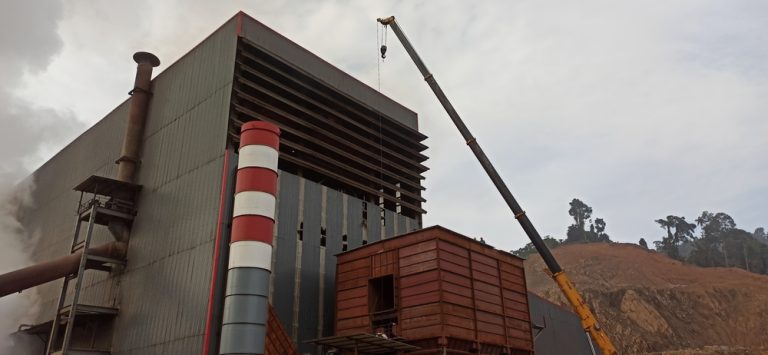Jakarta – CERAH highlights the influx of large Chinese capital into the green industry, particularly in the nickel sector of Indonesia. In the report “China’s Green Leap Outward,” released by the Net Zero Industry Policy Lab, Indonesia is named as the leading destination for green investment from China.
CERAH Policy Strategist Naomi Devi Larasati stated on Monday, September 29, that foreign investment, especially from China, must be closely monitored to prevent new problems in the environmental and occupational safety sectors.
“Collaboration with China is indeed reasonable to accelerate energy transition. But we must ensure that this investment does not only become an economic blessing on paper. At the same time, the communities surrounding the industrial sites bear the impact of pollution and high occupational risks,” said Naomi.
Of China’s total global investment commitments worth USD 227 billion, the largest portion flows into nickel-based battery material manufacturing, with ASEAN—particularly Indonesia—being the main hub.
The report places Indonesia on par with Malaysia, Brazil, and Hungary in attracting new projects. Giant producers such as CNGR, Huayou Cobalt, and GEM have even centralised their nickel processing operations in the country.
“Indonesia is now an important hub in the global clean energy supply chain. But this status will only add value if there is certainty regarding technology transfer, ESG compliance, and the creation of tangible benefits for local communities,” explained Naomi.
A murky track record in the nickel industry
Despite its fantastic value, Chinese investment in the nickel sector has its dark side. Trend Asia data indicate that at least 93 workplace accidents occurred in Indonesia’s nickel industry between 2015 and 2023. Of that number, 21 workers were reported dead in the industrial area of PT Indonesia Tsingshan Stainless Steel (ITSS).
Additionally, PT Indonesia Huabao Industrial Park (IHI) has been highlighted for its use of captive coal-fired power plants, which contribute to air pollution. As a result, cases of acute respiratory infections (ARI) in the surrounding area have jumped from 735 cases in 2021 to more than 1,100 cases in 2023.
“This fact proves that without strict supervision, investment can actually increase the burden on the environment and public health,” Naomi asserted.
CERAH believes that the Indonesian government must be more assertive in formulating policies and negotiating national interests with foreign investors. Moreover, Indonesia’s substantial nickel reserves position the country well in the global value chain.
“What we need is not only capital investment, but also the creation of local jobs, the improvement of Indonesian workers’ skills, and the strengthening of environmental regulations. All of this is part of ensuring a just energy transition,” said Naomi.
The Net Zero Industry Policy Lab report also recommends that host countries such as Indonesia enforce sustainable development requirements. These include environmental protection, occupational safety guarantees, and local value-added clauses in every investment contract.
“If the government simply opens the door without conditions, what will happen is that we will merely become a manufacturing island for foreign interests, rather than a centre of sustainable economic growth,” concluded Naomi. (Hartatik)
Banner photo: Eklesia_Magelo/shutterstock.com















